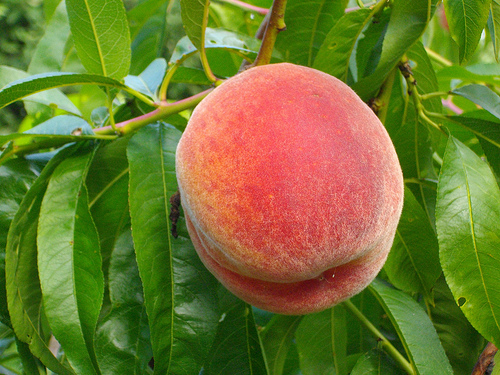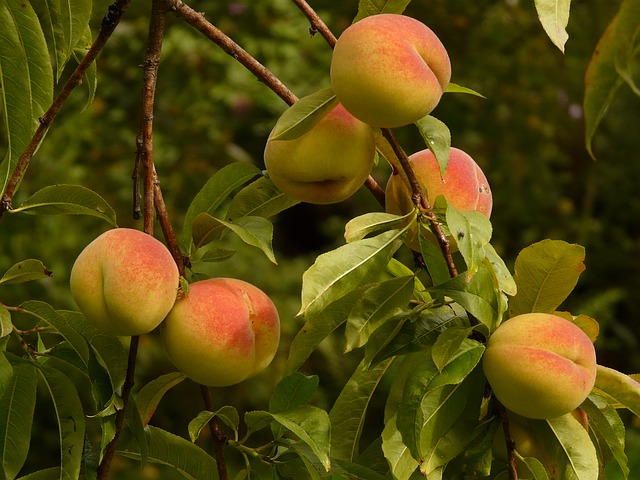How the Weather Can Make a Barren Peach Tree Bear Fruit

Gardening Question from Diana:
My peach tree is about 8 years old.
It has never had peaches until this year. It rained a lot. I started picking peaches on June 10-July 26. I have no peaches on my tree-just picked the last few. What can I do so that I will have many peaches again?

Answer from Pat:
You have just told me a story that mirrors the experience of many gardeners this year, but if you live in a mild-winter, coastal zone of southern California I am really sorry to tell you that your peach tree may never do this again, and there’s nothing you can do about it other than cutting it down and planting a low-chill variety of peach that’s better adapted to your climate.
The most logical reason your peach tree never bore fruit is most likely to be because you have the wrong variety. In your climate zone you needed to plant a subtropical peach variety which needs very few, if any, hours of winter chill in order to bloom and bear fruit. My guess is that never before during the last eight years did your tree get adequate hours of winter chill in order to bloom and bear.
To give you an example, there is an apricot tree across the street from my house. Many years ago when I first lived here and we had frequent frosts, my bird bath had ice on it in the early mornings and I lost a gardenia because of winter frost, but every summer during those years the apricot tree across the street bore masses of fruit. This year once again, after many barren years and total neglect by the current owner of the home, it was laden with fruit. My guess is that apricot tree is a ‘Blenheim’, a popular and delicious apricot variety which seldom if ever bears fruit in Zone 24.
It is not the heavy rains that gave you peaches this year but the cold nights that we have had. You must have noticed the temperatures in your garden were far cooler at night than usually is the case in winter and early spring. And it is interesting to note that the temperature does not need to drop down to freezing in order to give a tree the necessary “chill hours” it needs. It is not frost or snow that makes deciduous fruits bear but the number of hours they undergo between 45 degrees Fahrenheit and 32 degrees Fahrenheit that count. When the temperature keeps dipping down to 45 degrees Fahrenheit, as it did this year, that’s enough to make fruit trees growing in the wrong climate zones suddenly able to bear fruit.
If the weather we had this year is indicative of future years you will get fruit again. If not, you won’t. For more details on this subject please read the information on the chilling requirement for deciduous fruits on page 50 of my book.
Photo by Diddy.K 


I have 2 loring peach trees and 2 redskin peach trees. I live in East Texas. This year 3 of my peach trees died above the graft…but the roots have sent up many new growth limbs below the graft line…all the limbs on the 3 dead trees are dead. Any ideas. The one tree left was a redskin and it was loaded with peaches. The trees are planted 20ft apart in a square.
Many people are having trouble with peach trees due to climate change and erratic temperatures. My suggestion to you is to dig out the roots of the dead trees or have the stumps ground and plant barefoot trees again in winter. You will need to add more nitrogen to the soil so that the sawdust from the stumps does not subtract nitrogen in order to rot. Sulfate of ammonia is fine to use in this case. Be sure to water it well. There is no point in saving sprouts growing up from the root stock. You need to plant new grafted varieties.
My suggestion is that you stay away from planting another peach and plant a nectarine instead. Three varieties that grow well in West Texas are Armking, Crimson Gold, and Redgold. I suggest you phone your local Agricultural Extension or Master Garden hotline and ask them which would be best. Also ask if there is a peach variety that might withstand the erratic swings of temperature that are being brought about by climate change.